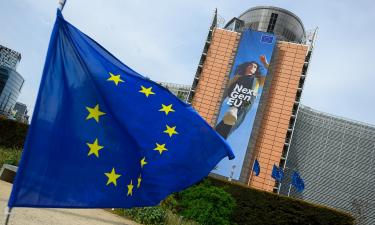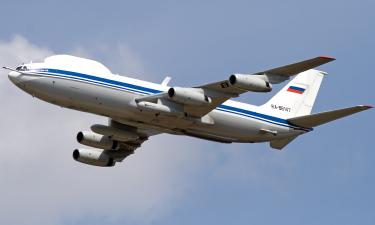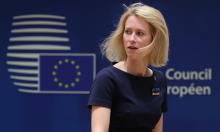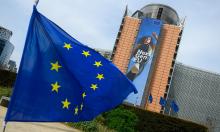Is EU stepping back from Russian sanctions?
By Harun Yahya
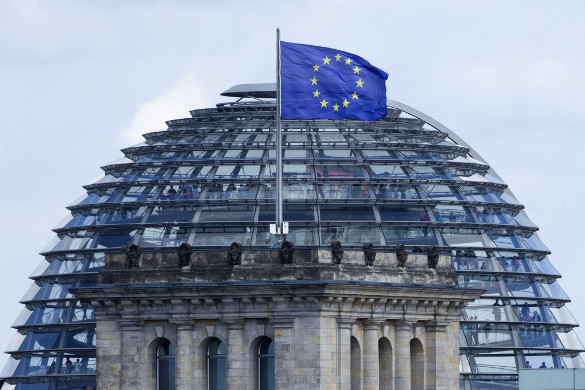
The declaration of a ceasefire after the Minsk summit between the leaders of Russia, Germany, Ukraine and France has raised the hope, albeit a small one, of a solution to the crisis in Ukraine in which more than 5,000 people have died thus far. However, given the attitudes of the participants, that solution does not seem easy to come by. So who are the winners and losers from the crisis?
With the Ukraine crisis, and Crimea leaving Ukraine, the EU member states and the U.S. began imposing sanctions against Russia, at the initiative of the U.S. However, much has changed in the world since the days of the Cold War, and it turned out to be more difficult than expected to build a new bi-polar world model. Rifts in the Western bloc on the subject of sanctions against Russia became ever deeper.
Sudden protests in Ukraine, which was on the road to becoming part of the Customs Union, followed by its break-up and the continuing civil war in which more than 5,000 civilians lost their lives were one of the most important political events of recent years. The Crimea's reunification with Russia triggered global economic sanctions by the U.S. Of course the sanctions damaged Russia, but we must also accept the fact that some EU states that backed the U.S. were damaged at least as much as Russia. Economic sanctions were followed by a sudden fall in global oil prices, again at the initiative of the U.S. The fall in oil prices affected not just Russia, but all the oil-producing states, and the EU - which was still trying to escape the impact of the global economic crisis - was damaged by the imbalance in interest and inflation rates and faced the risk of a return of the crisis. The boomerang effect of the sanctions severely shook the EU.
On the other hand, Russia did not sit idly back, but laid its own cards on the table. It first signed a 30-year oil agreement with China in retaliation for EU countries preferring ties to the U.S. over neighborly bonds. That means a new and costly problem for EU economies, which are almost totally reliant on Russia for gas. The industrial giant Germany in particular did all it could to keep channels of communication with carbon-rich Russia open, and it is still doing so. According to figures from Deutsche Bank, in the event that sanctions continue, the German economy will contract by 0.5% by the end of this year and German industry will lose 25,000 jobs. This is not good news for the EU economy, which is already under strain.
Russia was certainly not the only side damaged by Russian businessmen being prevented from moving freely and restrictions on bank transfers. That also had a profound impact on the European banking sector. In addition, the postponement of the wind turbine agreement between Russia and Siemens, whose annual exports to Russia are somewhere in the region of 2 billion euros, generated a loss to the carbon-based energy sector and also the alternative energy sector. Siemens unilaterally decided not to recognize the sanctions. Russia decided to cancel its agreement with Bulgaria regarding the South Stream pipeline, as Bulgaria had repeatedly delayed the start of construction; those that questioned the seriousness of the subject realized that Russia was not joking when Gazprom officials determined that the pipeline should pass through Turkey instead.
European vegetable growers, particularly Holland and Poland, were perhaps those who suffered most from the sanctions. European farmers, whose annual exports to Russia total 16 billion euros, were seriously affected by the sudden imposition of sanctions on exports. That loss in food exports was followed by Ireland, whose cheese exports to Russia total 4.5 billion euros a year. While Russia was able to obtain those products from other sources, particularly Turkey, European sellers' losses have not yet been compensated.
Russian tourists' European visas were cancelled, and the hospitality industry was damaged in conjunction with the falling rouble. Greek Cyprus, whose economy particularly relies on bank transfers by Russian oligarchs and tourist activities, found itself in a difficult situation. In a statement the leader of the Greek part of Cyprus, Nikos Anastasiadis, said, "We want to avoid any further impairment of relations with Russia and the European Union.' He was actually saying what many EU member countries such as Germany, France, Greece and Holland wanted to say, but could not. Although French President Hollande issued signals about stepping back from sanctions, he was unable to speak about the losses suffered by France as explicitly as former President Sarkozy. Sarkozy this time expressed the real thinking of the peoples of Europe when he said, "The European states do not want a Cold War with Russia."
Realpolitik, not ideals, would also seem to be tying the hands of the U.S. Following its unsuccessful interventions in Iraq, Afghanistan and Libya, the U.S. has suffered a severe loss of confidence. Some U.S. officials, who hope that the world becoming bi-polar once again and forcing the two leaders' hands will renew their own careers, may well be seeking a new Cold War. As I have said several times, if the EU and the U.S. take a unilateral positive step and put an end to their policy of encircling Russia, then we will see that Russia under Putin's leadership will also soon take a positive step in return. In addition, as we have seen in the cases of Iran, North Korea and China, economic sanctions in fact generally reinforce a country's ideological structure, rather than changing it. Pressure on Russia, which is deeply uneasy over being increasingly isolated and forced into a corner, will in fact damage the entire global system and cause an economic collapse in the Western bloc. President Obama, who has signed up to a policy of isolating Russia, must also see the risk of the U.S. being isolated in consequence. A solution therefore lies primarily in steps to come from the Western bloc.
Harun Yahya
Subscribe to Pravda.Ru Telegram channel, Facebook, RSS!
